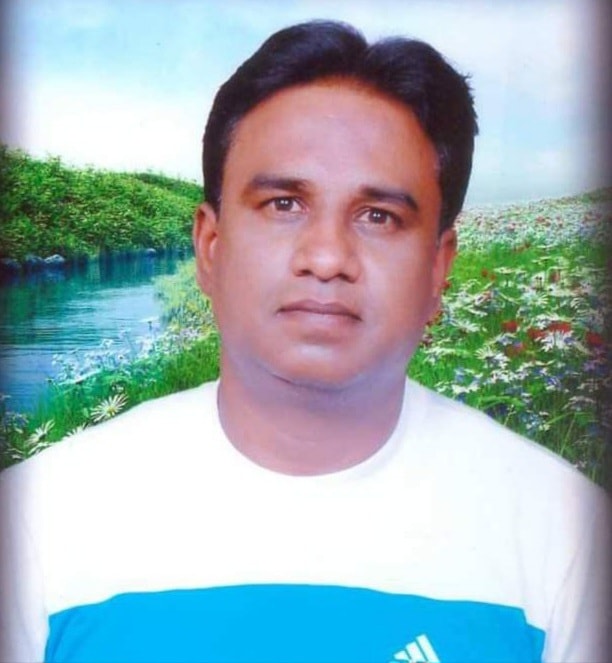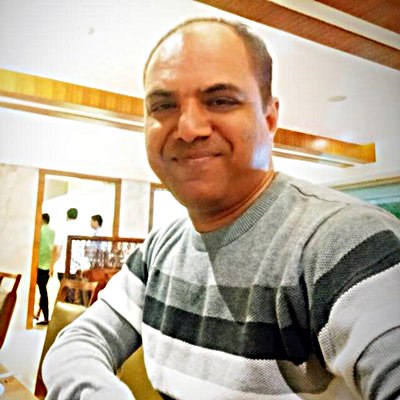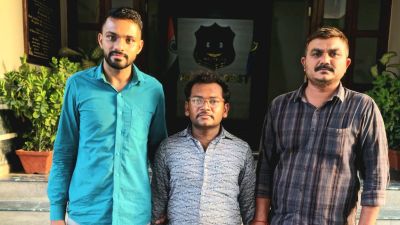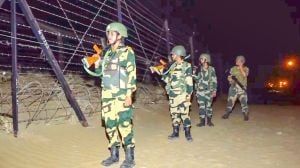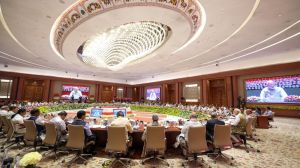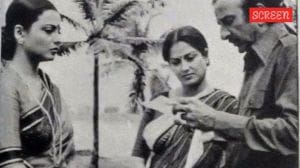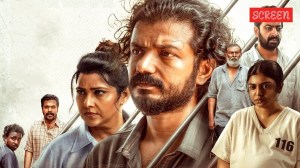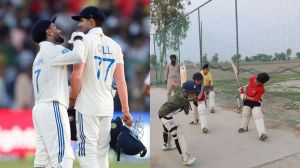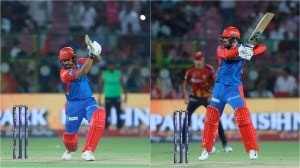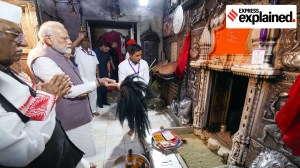CWG taint fading, but is a comeback too wishful for Suresh Kalmadi, the face of Pune, friend of Pawar to Gandhis?
A Delhi court has accepted ED’s closure report on money laundering allegations against Kalmadi. There have been calls to bring back the leader who once dominated Pune politics and the local Congress for close to three decades.
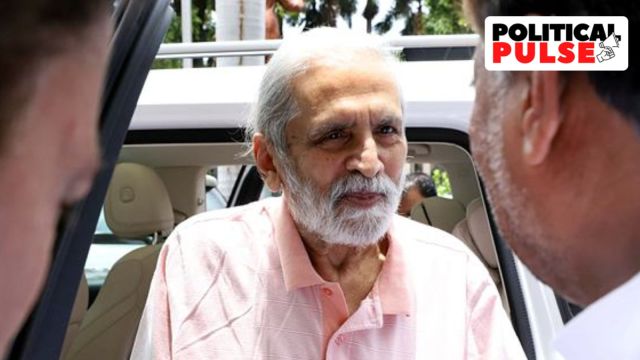 Kalmadi’s golden years in the Congress began after he returned to the party fold along with Pawar in 1986. (Express archive photo)
Kalmadi’s golden years in the Congress began after he returned to the party fold along with Pawar in 1986. (Express archive photo)Since a Delhi court earlier this week accepted the Enforcement Directorate’s (ED) closure report on the money laundering allegations against Suresh Kalmadi linked to the 2010 Commonwealth Games (CWG), there have been calls from the Congress ranks in Pune and western Maharashtra to bring back the veteran leader.
Kalmadi, the 81-year-old former MP and head of the 2010 CWG organising committee, took the reins of the Congress in Pune in 1992 and continued till he was suspended in 2011 following his arrest in connection with a separate corruption case linked to the CWG scam. Kalmadi spent nine months in prison before the Delhi High Court granted him bail in that case. After his release from prison, the Congress leader moved away from politics as the Congress also virtually froze him out, not extending him any invitation to party events and not seeking him out even after the disastrous results nationally, as well as in Maharashtra, starting in the 2014 Lok Sabha elections.
A former Indian Air Force pilot, Kalmadi started his political journey with the Youth Congress in the mid-1970s. Kalmadi shared a close rapport with Sharad Pawar, another young leader who was almost his contemporary, and this was instrumental in his appointment as Pune Youth Congress president in 1977. The following year, he contested his first electoral battle, from the Shivajinagar Assembly seat, but lost to the Janata Party’s Shanti Naryan Naik.
As the Congress split following the 1977 elections, Pawar also rebelled against the Congress government of Vasantdada Patil in Maharashtra and broke away with 40 MLAs to form the Progressive Democratic Front (PDF) government. At this time, Kalmadi followed him into the new party. However, this political experiment did not last long and after Indira Gandhi’s Congress made a comeback nationally in 1980, it dismissed the Pawar administration. Kalmadi stuck with Pawar and the Congress (S) and was rewarded as he was sent to the Rajya Sabha in 1982, the first of his four terms in the Upper House of Parliament.
Though he had thrown in his lot with Pawar, Kalmadi had already come to the attention of the Gandhis when he started making his mark in local politics, and this link to the Congress’s first family proved to be useful later for his political rise.

In 1977, Kalmadi and another activist had thrown slippers at then Prime Minister Morarji Desai’s car and protested when he was visiting Tilak Smarak Mandir in Pune. This brought Kalmadi to Sanjay Gandhi’s notice and, in 1980, he was introduced to Rajiv Gandhi at the National Defence Academy’s Passing-Out Parade. The two struck an instant rapport because of their background as pilots.
Return to the Congress
Kalmadi’s golden years in the Congress began after he returned to the party fold along with Pawar in 1986. In these years, his rising clout had also seen him in top positions at sports bodies in the country, starting with the Maharashtra State Athletics Federation president in 1980 and selection chairman of the Athletics Federation of India in 1987. He made a name as a sports organiser, starting the Pune Marathon in 1983, and this helped strengthen his political capital.
“Kalmadi’s proximity to Rajiv Gandhi made him a powerful party leader from Pune. The early 1990s was a time when then party leader and sitting MP Vithalrao Gadgil’s charisma was on the wane. It was here that Kalmadi got an opportunity to make a mark. In the mid-1980s, he had started Pune Marathon, which brought international athletes to the city, thereby elevating the status of Pune,” said Pune City Congress general secretary Ramesh Iyer.
Besides the marathon, Kalmadi also took the initiative to start the Pune Festival, a cultural event held during the Ganesh Utsav festivities, in 1989; the Pune Vyaspeeth; and the National Games. “Pune Vyaspeeth was an apolitical forum. There, experts and intellectuals from different fields gathered to put forth their views for the development of Pune. This was again a Kalmadi initiative. Be it in holding the National Games or the Commonwealth Youth Games, they all happened because Kalmadi was the central figure. The Balewadi stadium that came up during his tenure saw big sports events,” said Iyer.
“He was close to top industrial houses such as the Bajajs, Firodias, and several others. They sponsored events if Kalmadi was at the helm. Such was the rapport he had with top industrialists,” he added.
With Pune’s image as a sports and cultural centre receiving a boost because of his initiatives, Kalmadi utilised it for political benefits and was elected to the Lok Sabha from the city in 1996. However, soon, he again broke ranks with the Congress. It was a brief parting of ways. In 1998, he took on Congress’s Vitthal Tupe in Pune as a candidate of his Maharashtra Vikas Aghadi (which started as the Pune Vikas Aghadi). But he lost that election and months later returned to the Rajya Sabha on a Congress ticket.
His grip over Pune politics, however, remained undiminished, and he was back in the Lok Sabha from the constituency in 2004 and was re-elected in 2009. This, however, remained the last high point in Kalmadi’s political career as soon afterwards came the CWG scandal and his decline.
Kalmadi’s importance
Explaining the importance of Kalmadi, Congress leaders said the party and the Nationalist Congress Party not only won the Lok Sabha elections and at least four of the six Assembly seats in Pune when Kalmadi was at the helm, it also dominated the local civic body elections in the city. Since Kalmadi got sidelined in the party, the Congress virtually collapsed in Pune, losing the last three Lok Sabha elections by massive margins and failing to win any Assembly constituency in the last three Assembly polls (the only exception was the Kasba Assembly bypoll victory in 2023).
In the Pune Municipal Corporation, the party had dominated since 1992, but its decline began after Kalmadi’s downfall in 2011, said state Congress vice-president Mohan Joshi. “In 2012, the Congress won 27 wards, down from the 40 to 45 it won in 2007. In 2017, it was the worst performance. The Congress had only 12 corporators. Had Kalmadi been at the helm, Congress would have never been ousted,” he said.
State Congress secretary Babu Nair said though Kalmadi was not keeping well, he could still play a vital role in revitalising the party. “His health is not good, age has also caught up with him but I think he still has something to give to the party.”
“Kalmadi was always in the Congress. He is a committed Congress leader, a born Congressman …. The party’s national leadership will take a decision in this regard,” said state Congress spokesperson Atul Londhe.
Must Read
Buzzing Now
May 25: Latest News
- 01
- 02
- 03
- 04
- 05

